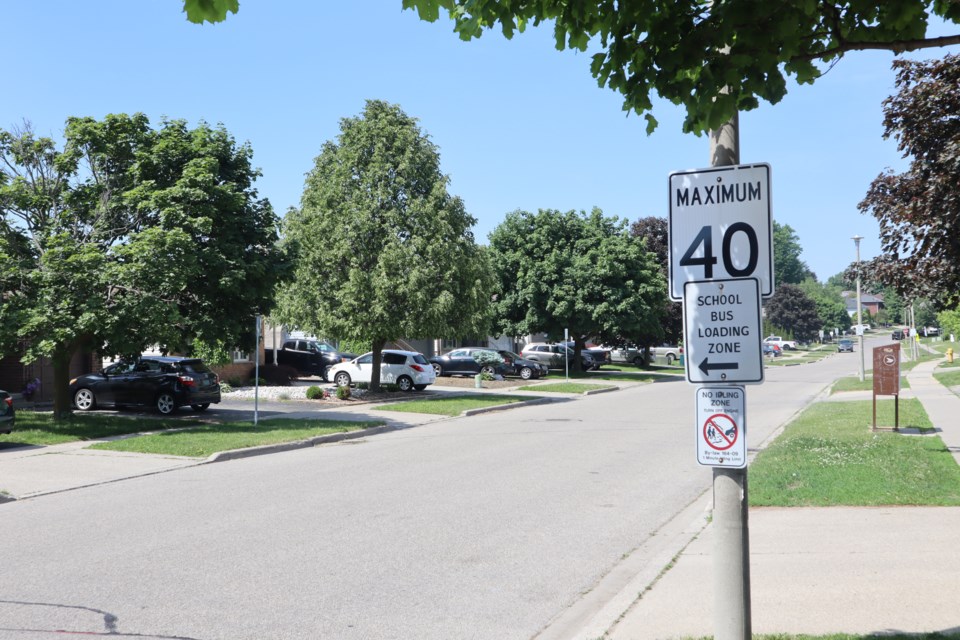Drivers will be expected to lower their speed on dozens of residential streets as the City of Cambridge moves to implement a pilot project first pitched in March.
On Tuesday, councillors will be asked to endorse a new schedule within its existing bylaw that allows the city to immediately lower and enforce the speed limit from the statutory default limit of 50 km/h to 40 km/h in four neighbourhoods.
The amendment, which allows the change in designated areas without changing the bylaw itself, gives the city ease in administering the pilot now and in the future.
The approximate cost to implement the pilot is $39,650 for materials, installation, data collection and communication and engagement initiatives.
Changes to the Highway Traffic Act in 2018 gave municipalities the authority to establish speed limits other than 50 km/h within neighbourhoods using “specialized gateway speed limit signage.”
In Cambridge, the neighbourhood speed limit review pilot project was first endorsed by council as part of the city’s 2020 Speed Management Program.
Staff concluded that in order to reasonably assess the effectiveness of the pilot, it would need to be implemented in “multiple, diverse neighbourhoods” in central Cambridge, lower Preston, north Hespeler and southwest Galt.
The selected streets do not include Baintree Way near Coulthard Boulevard where a seven-year-old was struck by a vehicle last Thursday and where neighbours are now calling for traffic calming measures.
The four pilot areas were selected based on “limited access points, mix of collector and local roads, inclusion of school and park zones, evidence of atypical speeding and differing neighbourhood character.”
The pilot project is scheduled to take place over a two-year period in order to complete comprehensive engagement and analysis.
The city says the benchmark for technical success will be 85th percentile speeds of less than 50 km/h in school and park zones and less than 55 km/h throughout the rest of the reduced speed limit area in line with the city’s existing Traffic Calming Policy.



